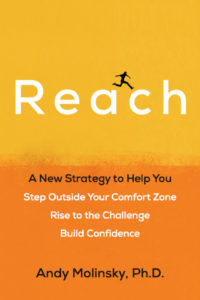Most of us want to be creative – and probably much more creative than we are right now. In fact, according to a global study conducted by Adobe in 2012, only 25% of people in U.S., U.K., Germany, France and Japan feel that they’re living up to their creative potential. But are there ways that we might actually be holding ourselves back from reaching our creative potential? I recently spoke with a creativity expert to find out.
Jennifer Mueller is a professor of organizational behavior at the University of San Diego’s School of Business and the author of the new book Creative Change: How We Resist It; How We Can Embrace It. In our chat, we unearthed 5 bad habits that make us less creative.
Bad habit #1: Evaluate and create at the same time.
Creativity is about imagination – about thinking beyond the possible, and in the process, probably coming up with a lot of crazy ideas that definitely won’t work. But without that flow of unrealistic and impractical ideas, it’s really hard to have that idea that really could work emerge from the stream of thinking. So don’t let your “no’s” and “this can’t work’s” kill your creative process.
Habit #2: Doing too much research up front.
When building a new product or service or idea in a particular area, it’s very tempting to get the lay of the land – to see what’s out there before coming up with your own version of an idea. And, of course, you don’t want to reinvent the wheel. But, to come up with a breakthrough that is truly original – and not merely an incremental addition to what we already know – it’s important to sometimes put on blinders. So, one key to creativity is minimize research up front to maximize ingenuity and idea generation down the road.
Habit #3: Believing (too much) in the “light bulb theory” of creativity.
Many of us believe creative insights happen in that sudden flash of brilliance. But the reality is much different. More often than not, creative thinking emerges over time from a slow and steady process of consistent, determined work. You’ve probably heard of Malcolm Gladwell’s famous 10,000 hours rule: talent is necessary, but consistent, determined practice (10,000 hours, in fact) seals the deal. The same goes for creativity.
Habit #4: Believing that only “gifted” people are creative.
This one is really important! Creativity is definitely not the privilege of the few. Anyone can be creative. The key, according to science, is to hone your ability to (a) combine opposites, (b) see possibilities in the impossible, and (c) make analogies between seemingly unrelated things.
Habit #5: Generating ideas without learning how to pitch them.
Don’t underestimate the importance of convincing others about your ideas. Creative ideas – which are often contrary to the status quo – are often treated with skepticism. So, learn to both create and convince if you want your ideas to spread.
In the end, there’s no single magic formula for generating brilliant ideas. But there are key tripwires to avoid. And with these points in mind, and a healthy dose of intrinsic motivation in the work you’re doing, you’ll be well positioned for success.
Originally published on Inc.com
 AVAILABLE NOW
AVAILABLE NOW
Reach A New Strategy to Help You Step Outside Your Comfort Zone
According to Andy Molinsky, an expert on behavior in the business world, there are five key challenges underlying our avoidance tendencies: authenticity, competence, resentment, likability and morality. Does the new behavior you’re attempting feel authentic to you? Is it the right thing to do? Answering these questions will help identify the “gap” in our behavioral style that we can then bridge by using the three Cs: Clarity, Conviction, and Customization. Perhaps most interesting, Molinsky has discovered that many people who confront what they were avoiding come to realize that they actually enjoy it, and can even be good at it.